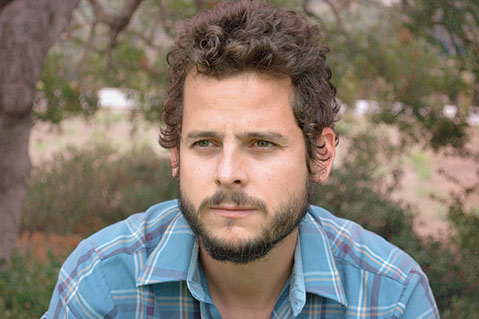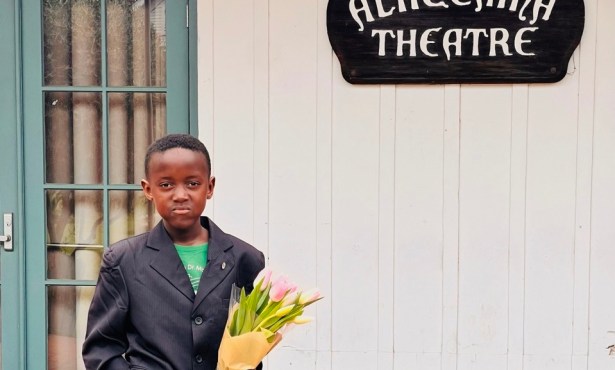Teddy Macker’s Poetry
Carpinteria-based Author’s Book of Poetry This World

Teddy Macker teaches in the College of Creative Studies at UCSB. His first book of poetry, This World, has just been published.
Yours are very spiritual poems. They’re also infused with imagery from the natural world. Clearly, there’s a connection.

Firstly, spirituality and art do not seem parsable to me. And “nature” and spirit do not seem parsable either. To go one step further, I’ll borrow from Kenneth Rexroth, who said, “What is, is what is holy.” In other words, nothing is not numinous. While one part of me—a part I can respect and often heed—does feel concern about this problem or that crisis, feeling fear or anger or sadness (or all of the above!), another part of me knows that reality blooms by being itself. I think it’s possible, though certainly not easy, to try and make room for both truths, however paradoxical and tricky that may seem.
So for you, poetry happens when we put aside “fear or anger or sadness.” That’s usually where my poems start.
Mine often start there, too! And personally I don’t know if there’s really a way to put aside fear and anger and sadness. Seems they’re a part of our human condition. I guess what I am trying to say is (to quote the great songwriter Greg Brown), “Hallelujah anyway.”
While the world spirit infuses your poetry, you’re also very much a local poet, someone living on a small ranch in Carpinteria.
Where I live does inform my writing, of course. Apricots show up a lot in my poems, hawks, sycamores. Come to think of it, the odor of a sycamore leaf itself deserves its own poem or three.
You’ve obviously read widely. What role does the poetry of past centuries and other places play in shaping your own work?
Simply put, I read widely and omnivorously and greedily and sleuthily to learn more about writing. I’ve also gone to books the way a starved man goes to a hunk of bread. To survive. Sometimes it’s a little bit of both! There are two lesser-known writers I reverence in particular: Jean Giono, a Frenchman, and John Cowper Powys, a Brit who settled in Wales. Reading them returns you to the magic—paltry word!—of things as they are. Both were vast wild souls and great craftsmen. Both were Jongleurs de Dieu. I love their work with something verging on giddiness.
Especially in a poem like “Noontime Well,” I hear the echo of your friend and mentor, the late Barry Spacks. Can you talk about Barry’s influence?
Barry’s influence is so deep there’s no place where he stops and I start. To put it somewhat dramatically, though not—I don’t think—untruly, he was my master. I somehow knew to serve an apprenticeship under him, and I did so for 18 years. We had much shoulder-to-shoulder time together, working on poems and stories (line by line, sentence by sentence), taking walks, making meals, doing readings, sharing an office at UCSB.
That’s an incredible relationship, but not surprising, considering Barry’s legendary generosity.
He taught me so many things about writing and human being. Here’s a Procrustean (an adjective he loved) summary. In terms of writing, he modeled a go-for-broke hardihood (he also loved the German word sitzfleisch: the ability to remain still in one’s seat to do the work). In terms of human being, he helped me see the perils of over-certainty and dogmatism; the graces found in suffering and surrender; and the boons of reckless, unchecked laughter. Barry laughed often and he laughed hard.



